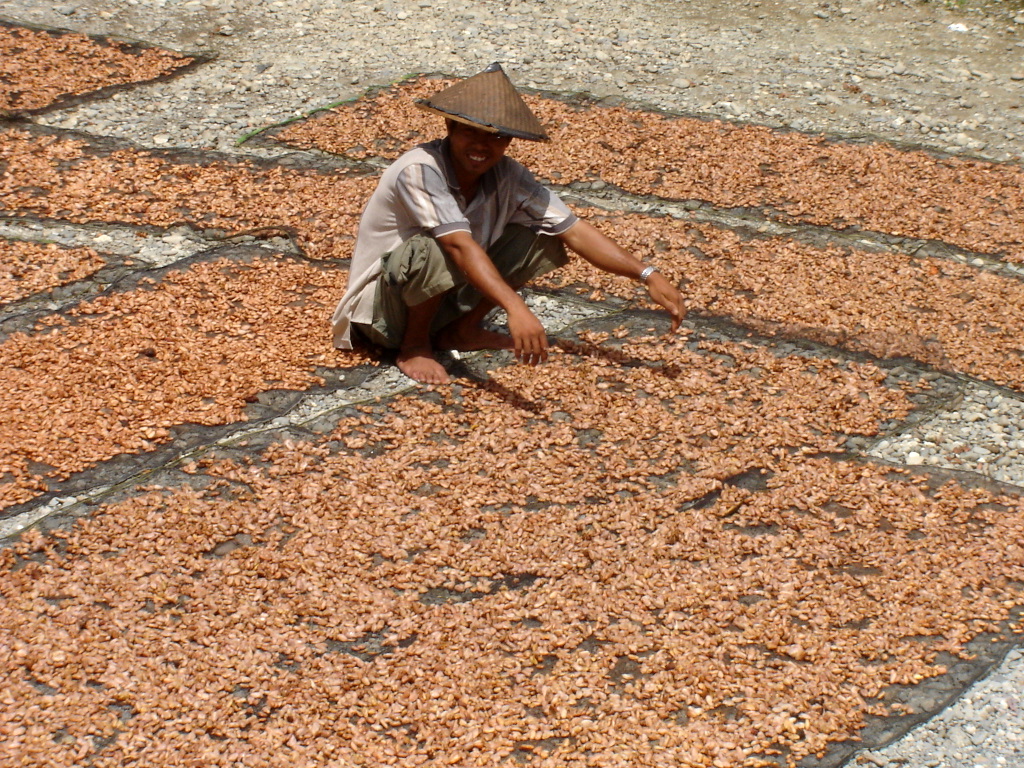
The $100 billion chocolate industry is at a crossroads. Rising global demand for chocolate and other cacao products has failed to improve the livelihoods of farmers in the main cacao-growing regions of West Africa and Southeast Asia. With increasing consumer demand for sustainable sourcing, along with growing awareness of labor and climate risks linked to tropical agriculture, the industry needs to shift, and fast.
“Consumers are becoming more and more aware about sustainability,” says Alexi Ernstoff, global science lead at the sustainability consulting firm Quantis, who works with many companies in the cacao sector. “The longer companies wait, the more expensive and difficult it's going to become.”
Revelations about the prevalence of child and forced labor on cacao farms in West Africa, driven primarily by low prices, forced a reckoning around ethical sourcing across the industry. Media coverage of this made for embarrassing headlines for brands. And for parents, the thought of the chocolate they give their children being produced by another child living in poverty was powerful.
“There are several reasons why cacao sourcing is challenging,” says Troy Pearley, executive vice president at the U.S. branch of fair trade chocolate purveyor Divine Chocolate. “One, it’s very difficult to earn a living income as a cacao farmer. They often struggle to meet their basic needs, and this creates challenges for farmers to properly maintain their family life and the upkeep of their farms.”
In the traditional model, most chocolate companies, and any users of cacao, purchase the ingredient from one of the big trading companies: Cargill, Olam and Barry Callebaut. Those companies collect cacao from countless farmers, often via a network of traders, meaning there is often limited visibility into their supply chains.
The truth is, brands are often as surprised as consumers when allegations of child labor, deforestation or human rights abuses are found along their supply chains. It’s a feature of a broken system, where price was the key factor, not sustainability, and due to brands lacking relationships with farmers.
But some companies, big and small, are returning to the field and finding ways to source directly, with real benefits for farmers. One is Divine Chocolate, a high-end chocolate brand founded in 2016 with the goal of doing business radically differently. From the start, it's taken a completely novel approach, eschewing the big traders entirely. To enable better sourcing, transparency and communication with cacao growing communities, Divine Chocolate works with groups like Fairtrade International, who work directly with farmers to meet a set of strict social and environmental standards.
“Change cannot be made unless key stakeholders are engaging and recognizing that it’s our responsibility to be a catalyst for positive change within the cocoa sector and confection industry,” Pearley says.
Divine Chocolate started not in a factory in the U.S., but in the cacao farms of Ghana. The company's experts trained farmers to stop using pesticides, encouraged eco-friendly cultivation, and set up special units to ensure child labor could be prevented and that children could receive proper education. In recent years, they’ve started to promote agroforestry, growing cacao alongside natural forests in a mixed ecosystem. It’s far beyond the basic requirement of not sourcing from farmers using child or forced labor.
“You must be proactive, because the root cause of these issues within the supply chains is poverty,” Pearley says.
Divine Chocolate is a relatively small player, and while its work has had an impact on communities, it’s not enough to shift the industry. But on the island of Sulawesi in Indonesia, the major chocolate manufacturer Mars is showing that even big brands can source directly, with clear benefits for both profit and sustainability.
Mars set up its own cacao gathering and processing facilities in Sulawesi over recent years, buying directly from farmers, not traders, as it had done before. This allows the company to help farmers invest in better-quality cacao — for example by purchasing better agricultural inputs or training in new techniques, says a spokesperson for Mars Indonesia. It also means Mars can ensure farmers are meeting the company's policies around sustainability and human rights.

The consumer goods giant is already seeing financial results. It was able to grow its sourcing from Sulawesi even as overall cacao production in the region fell, due to the ability to pay a higher price and the relationships built with growers.
Meanwhile, in West Africa, Divine Chocolate is taking things a step further, not only sourcing directly from farmers in Ghana via Fairtrade, but also giving them ownership. The Kuapa Kokoo farmers union are not just suppliers, but also co-owners of Divine Chocolate. That means they benefit from every bar sold in grocery stores around the world.
“Divine Chocolate believes in farmer ownership,” Pearley says. “It has enabled the folks that are most affected negatively in the supply chain to make good decisions for themselves that have long-lasting benefits.”
There is a strong need for more brands to look to innovative models like these and learn from how they engage with farmers, says Ernstoff of Quantis.
“One thing that is helpful is when companies see their peers moving,” Ernstoff says. “Really the goal is to reach that middle 60 percent of companies, bring the evidence [to] show them they need to make changes, and convince them that this is extremely important.”
For Pearley, Divine Chocolate’s success shows there is a way to source cacao sustainably and ethically, but it will require companies to think differently. If they don’t, they’ll pay the price later.
“Cutting corners will always put you at risk of participating in reckless behavior,” Pearley says. “Companies that have more focus on the bottom line will always be at risk for committing unintentional, unthinkable acts.”
Image credits: Michele Blackwell/Unsplash and hartanto/Flickr

Nithin Coca is a freelance journalist who focuses on environmental, social, and economic issues around the world, with specific expertise in Southeast Asia.













